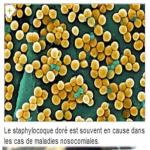L'oeuf.
Composition
The egg is a complete food, a living food if it is of organic origin, that is to say from hens fed and raised without toxic substances, in the wild. It is an excellent staple food and very good for the health of almost everyone. Its assimilation is almost perfect under normal conditions. Obese people and people prone to hypercholesterolemia should take eggs in moderation (2-3 eggs a week is enough) because of its high cholesterol content (300-500 mg per egg and it's mostly egg yolk which is high in cholesterol 1600 mg per 100g). Its richness in first-class proteins (essential for tissue growth and maintenance) as well as phosphorus (phosphatides) and nitrogen (lecithins) fats make it valuable for growth, liver cell health and balance. general nutrition. The egg also contains calcium, iron, phosphorus, vitamins A and D.
Which egg to choose and how to cook it?
Eggs from the countryside or from African chickens (bicycle chicken) are the best but they are rare and it is difficult to find live eggs these days, I mean organic eggs. In addition, the egg must be cooked correctly. If possible, the yolk should be raw and the white lightly cooked. Raw egg white contains avidin, which annihilates biotin, a B vitamin; this phenomenon does not occur with a cooked egg white. Egg white should not be eaten raw because allergy phenomena and difficulties in assimilating certain vitamins may then appear. The ideal would therefore be a slightly hard-boiled or poached egg.
Here is a recipe for a perfectly digestible egg: boil a large pot of water and drop one or two eggs into it. Cover. Stop the heating and leave the egg for 5 or 10 minutes. The yolk will be raw and the white slightly taken, very unctuous.
NB: In digestive difficulties, if the egg is recommended, it should be cooked slightly hard. Overcooking causes a dark, slightly toxic film to form around the yolk.
For whom and how much?
If the egg is of orthobiological origin, that is to say if the hens have been fed and raised without toxins, in nature, the egg is an extremely digestible food, precious for rheumatics, sickle cell anemia, arthritis and even for liverworts if consumed in moderation.
--Rheumatizers and sickle cell patients who eat eggs daily have less painful and spaced attacks (two soft-boiled eggs each day are enough.
--In children. half an egg every day; in adolescents. an egg or two every day. The pregnant and nursing woman, the convalescent, the old man will not deprive themselves of it either
--It is essential for the child, from an early age: first a few knife points of raw egg yolk, then a teaspoon and finally a tablespoon around the age of 3 or 4 years.
--For both school-age children and teenagers, one egg a day is a good average. If the teenager complains of fatigue around 10 or 11 a.m., give him an egg and an egg or two for breakfast.
In practice:
- In slimming diets, the egg can be included at the rate of 1 egg every two days, because its high protein content helps to balance the ration and its cholesterol content requires a little moderation.
-In salt-free diets, egg whites should be eliminated due to their high sodium content;
-In cases of hypercholesterolemia, the egg must be reduced or even eliminated;
-The child can tolerate a hard-boiled egg very early on, then later a soft-boiled egg; -A hard-boiled egg in the morning calms hunger -its high lipid content allows a prolonged stay in the stomach
- The soft-boiled egg is reintroduced very early in the diet of gastric patients;
- The hard-boiled egg can be brought in the diet of diarrheic patients;
-In cases of inappetence, a soft-boiled egg is generally well accepted;
-Apart from certain cases of egg allergy, hard-boiled or soft-boiled eggs are generally well tolerated by all categories of individuals
Egg accidents
--The egg can be contaminated in the oviduct of the hen or during its passage through the cloaca. After laying, it may be soiled with faeces or manure. The shell generally protects its content, but this protection is not sufficient. A washed egg is thereby stripped of the gelatinous coating of its shell and external micro-organisms can penetrate it, becoming, by proliferation, a dangerous environment. The shell should therefore not be washed or cleaned before storage for fear of removing the protective envelope. Keep the eggs for 8 to 10 days at most, in a cool place not below 4 degrees.
--The egg can be infected, during the summer, by a culinary preparation which transforms it into a culture medium. The classic example is egg cream. Salmonellosis is the most serious of these poisonings and causes vomiting, diarrhea, headache and fever. These salmonellosis can last four days and some forms are reminiscent of typhoid fever.
--Some other contaminations make the egg inedible. The candling of the egg by transparency makes it possible to detect this alteration. Duck eggs are more toxic and more easily infected than others.
--The hen's food affects the quality of the egg. Certain industrial foods, in particular fish meal, have an unfortunate influence on the taste of the egg and can even make it toxic or indigestible for certain people who, however, tolerate "normal eggs" well.
--Poorly produced eggs can cause skin or digestive disorders, allergic sensitivity, asthma, migraines, etc.
--Raw egg white is toxic and difficult to assimilate. Indeed, it contains a neutralizing factor: the gastric juice trypsin, and the proteins of this egg white are not then attacked by the gastric juice. In addition, egg white contains a protein: avidin, which forms with vitamin B (biotin) an unassailable combination by gastric juice. This avidin therefore neutralizes the biotin of the egg but also that of other foods ingested at the same time. Animals fed raw egg white have a pellagra rash.
--Cooking the egg, by destroying the biotin-avidin combination, prevents this vitamin B deficiency. It is therefore preferable to cook the egg, but not excessively. We recommend the consumption of soft-boiled eggs. The egg white is not hard-cooked but remains a bit gelatinous. Simply place the egg in boiling water then remove the water from the heat and leave the egg there for 8 to 10 minutes.
Add a comment








